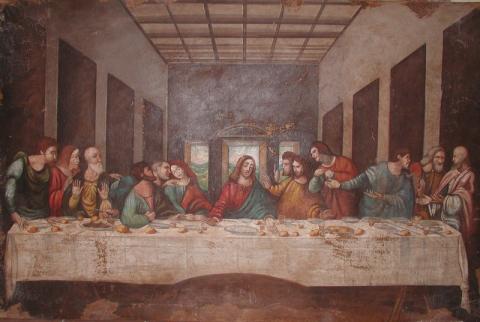
For the last couple of years I have been working on an interpretation of Einstein’s Relativity (partially in relation to frames). At the same time I was working on subjectivity in relation to knowledge (partially in relation to frames). A few nights ago, as I was trying to sleep, my brain very rudely interrupted my attempts and before me I saw of the frames all coming together and I realised that I had been working on the same thing, but from a different perspective. To be fair to myself, I had known this but in this moment it all came together in a crystallising moment.
A little background, Newtonian relativity posited that there was only one frame of time, which we can call, in my context, existence (see fig.1).

Einstein then came along and said that there are multiple frames, dependent on external/objective viewers (see fig. 2).

Henri Bergson then came along and said that time is purely consciousness and then, must be, wholly subjective. What they didn’t seem to realise was that each and every one of them was not analysing what time ‘is’, rather, they were talking about how time is perceived. For them, existence was experiential and not something (which is closer to Newton’s thought) which is just ‘there’, independent of being observed (a bit like- if a tree falls in a forest and there is no one to hear it, does it make a sound? Yes, of course it does). This brings us closer to the German Philosopher Immanuel Kant who said that what we see of something is not what it truly is, but rather what we posit upon it.
However, the flaw in these theories, when it comes to an underlying existence, is that each frame is isolated from all others and do not represent the true existential and experiential illusion which we call existence. Given how our knowledge of existence is subjective, it all stems from our selves, we cannot separate life into isolated frames. If we apply Einstein’s adaptation of relativity to existence then we can see that life is not in one frame, although one frame underpins it- conception-funeral/memory, (the amount of time we ‘exist’ in one form or another), but whereas Einstein breaks the frames into isolated events, as viewed form an impersonal observer (objective- maybe a person on a hill watching the lightning striking, maybe two synchronised clocks) it is not possible to break our experience into such handy little frames (see my entry on context and how there are an almost infinite number of contexts), rather, as nothing is made in isolation, one frame bleeds into the other, and so instead of having one frame within a wider frame we actually have a series of overlapping subjective frames (see fig.3) within the single frame (i.e. existence).

Given how we cannot have knowledge of any one frame in isolation this would then go to suggest a potential clarification of the Socratic paradox. Socrates stipulated that the ‘wisest person is one who knows that they know nothing’ (to clean up his language from the use of the generic word ‘man’) which creates a paradox as to know that you know nothing is to know something. With my work on the overlapping frames one can then suggest that the wisest person is not one who knows that they know nothing but knows, given the overlapping fields of subjectivity (not to mention subjectivity itself), the wisest person would be one who knows that one can know nothing, there is the potential to know nothing, however, the actual possibility to know nothing is as remote as the most distance star to the nth degree
‘till next time


